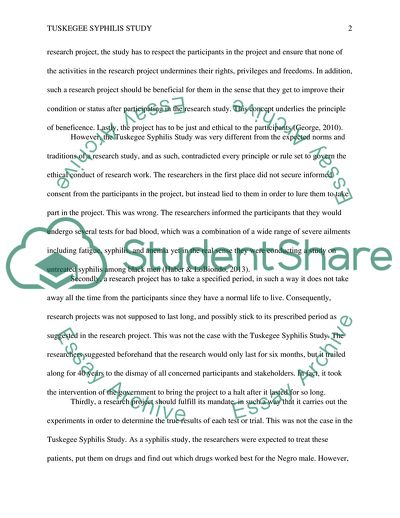Cite this document
(Tuskegee syphilis study Assignment Example | Topics and Well Written Essays - 1250 words, n.d.)
Tuskegee syphilis study Assignment Example | Topics and Well Written Essays - 1250 words. https://studentshare.org/medical-science/1861730-the-principles-of-research-ethics-and-their-violation-in-the-tuskegee-syphilis-study
Tuskegee syphilis study Assignment Example | Topics and Well Written Essays - 1250 words. https://studentshare.org/medical-science/1861730-the-principles-of-research-ethics-and-their-violation-in-the-tuskegee-syphilis-study
(Tuskegee Syphilis Study Assignment Example | Topics and Well Written Essays - 1250 Words)
Tuskegee Syphilis Study Assignment Example | Topics and Well Written Essays - 1250 Words. https://studentshare.org/medical-science/1861730-the-principles-of-research-ethics-and-their-violation-in-the-tuskegee-syphilis-study.
Tuskegee Syphilis Study Assignment Example | Topics and Well Written Essays - 1250 Words. https://studentshare.org/medical-science/1861730-the-principles-of-research-ethics-and-their-violation-in-the-tuskegee-syphilis-study.
“Tuskegee Syphilis Study Assignment Example | Topics and Well Written Essays - 1250 Words”. https://studentshare.org/medical-science/1861730-the-principles-of-research-ethics-and-their-violation-in-the-tuskegee-syphilis-study.


